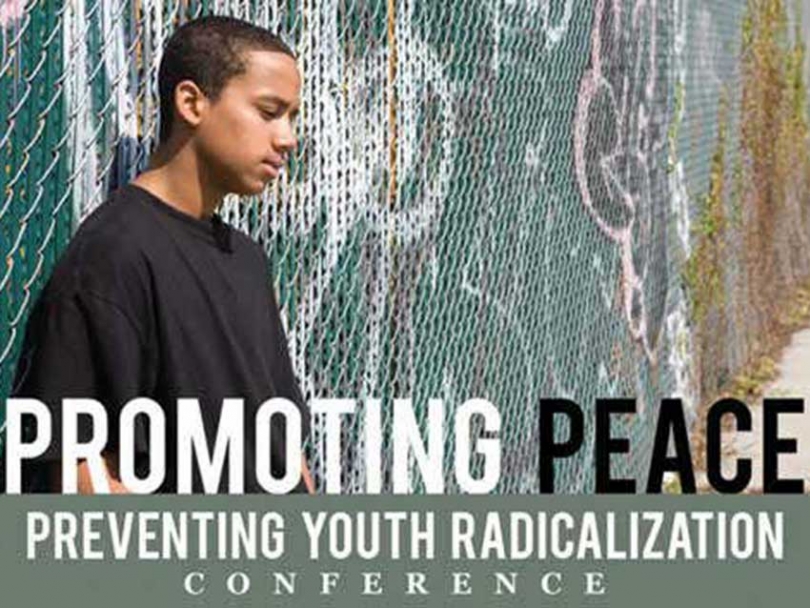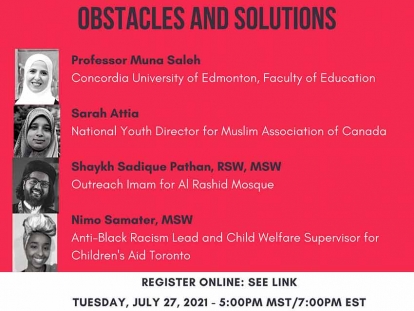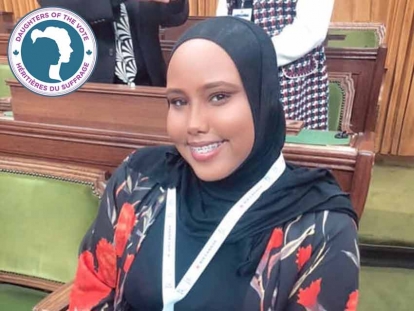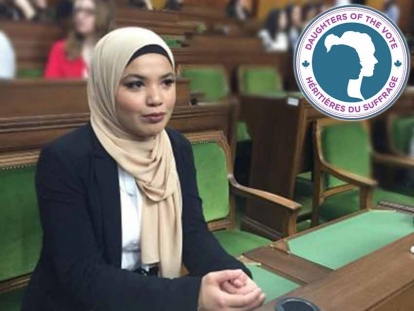 A poster advertising the recent Promoting Peace and Preventing Youth Radicalization conference at the National Arts Centre.
Photo credit: www.gedoonline.com
A poster advertising the recent Promoting Peace and Preventing Youth Radicalization conference at the National Arts Centre.
Photo credit: www.gedoonline.com
Dec
How can we prevent our youth from becoming vulnerable to radicalization and violent extremism? That was the question on everyone's minds at a recent conference organised by the Canadian Friends of Somalia.
The conference held at the National Arts Centre on 6th and 7th December was titled, “Promoting Peace and Preventing Youth Radicalization” and focused primarily on Somali youth who are at risk of being recruited to fight in their home country.
But Somali teens aren't the only group vulnerable to radicalization and one of the most important facts to take from the conference is that radicalization of our Muslim youth is still limited and has not by any means become a widespread phenomenon, as portrayed in the mainstream media.
The majority of Muslim youth are law abiding citizens and will hopefully contribute positively to their society, as many already are. Nonetheless, it is an issue that has slowly begun to raise its head in our communities and one that certainly needs attention. By far, prevention is much more effective than intervention and this is the time to be having this discussion.
Of the many national and international speakers that were present at the conference, PhD candidate Michael King from Mc Gill University provided some of the more useful insights on the issue. Mr. King has been studying radicalization in Canada and after interviewing Muslim community leaders, activists and extremists in Montreal, he concluded there are four main factors contributing to the radicalization of Muslim youth in Canada.
The four factors are the non-contextual understanding of Islam, that perception that Islam is under attack which is coupled with the desire to defend Islam, and the misdirected energies and natural tendencies of youth.
More specifically, Mr. King found that the first factor, which is the non-contextual understanding of Islam may stem from radical messages on the internet, organizations that promote self interpretation of Islam as opposed to seeking authentic and contextualized interpretation, books written by scholars living in different political climates and imams of mosques who aren't fully in touch with the realities of life in the West. The latter point is certainly a point that has been discussed before; however, it should be clarified that this statement is not meant to be an attack on imams for they come with knowledge and good intentions for which they should be commended.
The second factor, the perception that Islam is under attack, as Mr. King explained is evident in the wars in Iraq and Afghanistan, the political conflict in the West which include the banning of Muslim figures like Tariq Ramadan and Cat Stevens from entering the United States (although they are labelled as “moderate” Muslims), and the banning of the hijab in France, amongst other events. He explained that these actions lead to the desire to defend Islam which may be intensified for youth as they are usually inclined to dosomething.
The final factor, which may seem obvious but can in fact be the most eye-opening, are the characteristics of these young men who Mr. King described as emotionally-driven and affected by media and music such as gangster rap.
His final observation was that we cannot underestimate the role of the individual in the radicalization process. Therefore, one can conclude that since Islam does not preach terrorism and violence, it is clearly individual misinterpretation of the religion that has lead a small subset of our youth to radicalization.
Other speakers emphasized the importance of positive parenting and the role of the family in supporting youth as they form their social identity. The next most important role, they stressed, belongs to the mosque and then to the school and wider community. If our youth do not find the support, caring and the understanding they need with their families, if they are not connected positively with the mosque, if they are alienated and not well integrated in their schools and communities, if they do not have constructive outlets for their time and energy, then a subset of them may become more vulnerable to radicalization.
There is so much talent, goodness and hope in our youth ”“ let us teach them the true Islam, and how to use their critical thinking and sound decision making skills to filter out incorrect ideas. Let us be there for them as parents, educators, role models and older brothers and sisters. Let us empower them to realize all of the great contributions they can make to this society and to the world.
This article was produced exclusively for Muslim Link and should not be copied without prior permission from the site. For permission, please write to info@muslimlink.ca.












